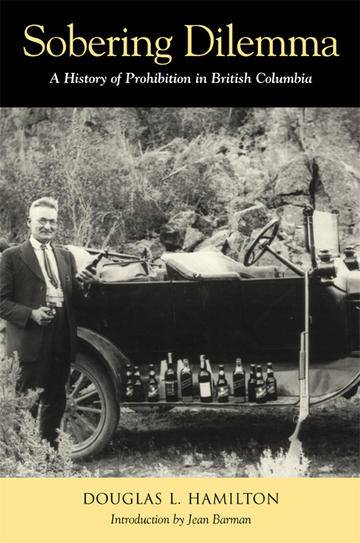About BC Books Online
BC Books Online was created for anyone interested in BC-published books, and with librarians especially in mind. We'd like to make it easy for library staff to learn about books from BC publishers - both new releases and backlist titles - so you can inform your patrons and keep your collections up to date.
Our site features print books and ebooks - both new releases and backlist titles - all of which are available to order through regular trade channels. Browse our subject categories to find books of interest or create and export lists by category to cross-reference with your library's current collection.
A quick tip: When reviewing the "Browse by Category" listings, please note that these are based on standardized BISAC Subject Codes supplied by the books' publishers. You will find additional selections, grouped by theme or region, in our "BC Reading Lists."
 Enlarge Cover
Enlarge Cover
Does drug prohibition work? There are many governments, police forces, jailers and drug testers who say it does. Prohibition is the favoured choice in dealing with intoxicants in the world today. But how well does it stand up to the test of history - in particular, our own history in British Columbia? The province has seen two harsh liquor prohibitions: first on its Native population from 1854 to 1962, and second, on the entire population, during the 1917-1921 period.
Sobering Dilemmaexamines both, touching on the province's longtime fondness for alcohol and the social conditions which encouraged toleration of heavy drinking. The prohibition movement reached its peak during the 1916 "Purity election" which combined a provincial election with twin referendums on women's suffrage and alcohol prohibition. The liquor referendum results were shamelessly manipulated by both sides, but prohibition was finally imposed in October 1917.
Douglas Hamilton has examined the classified files of the Provincial Police at BC Archives and shows how British Columbia's experiment with prohibition soon degenerated into a hopeless morass of corruption, scandal, favouritism, class conflict, freelance informants, bureaucratic ineptitude, and racism.
Douglas L. Hamilton was born in Washington, DC, and received his MA in history from the University of California, Riverside. After a brief vacation to British Columbia in the early 1970s, he moved to the Gulf Islands to farm.
Soon after, Hamilton began writing history pieces for magazines, and his stories have appeared in Pacific Yachting, Canadian West, and True West. He has also contributed to the three most recent volumes of Raincoast Chronicles. Hamilton has covered such diverse topics as the smallpox epidemic of 1862, the Pig War, rum-running, Typhoon Frieda, and the submarine attack on Estevan Lighthouse.
Hamilton lives on Lasqueti Island with his wife and her harpsichord, three cows, four sheep and a flock of chickens.


